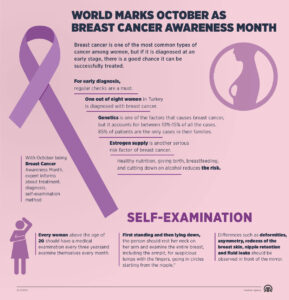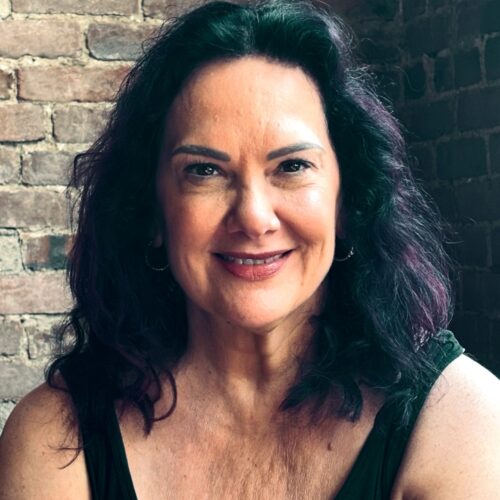Sharon Lewis
The Cleveland Observer
Interview with Annette Reisner, MPA, BSN, RN. This article is for informational purposes only and is not intended to serve as a substitute for professional medical advice, diagnosis, or treatment.
Q: Can you tell us about how your breast cancer diagnosis began?
Reisner: It started with a MyChart reminder in February, telling me it was time for my mammogram. Life had been so hectic that I had put my own health on the back burner. I lost my mom, my husband was diagnosed with prostate cancer, and my son has a seizure disorder. I’ve also been working full-time. When I saw the reminder, I finally scheduled the mammogram.
Q: With your background in healthcare, how did you approach the situation once the cancer was found?
Reisner: I’m a registered nurse with a master’s in public administration, so I definitely came into this knowing more than the average patient. I’ve also studied natural health and medicine. When the cancer was discovered in my right breast, it was hard, but I knew what was happening right away. I could tell from the scans that it wasn’t good, especially when they said the tumor was spiculated, which means it had spikes.
Q: Did you have any decisions to make early on?
Reisner: Yes. At first, there was a question about whether cancer was in both breasts, but it turned out the left breast just had an inflamed mammary gland. From there, I had to decide on the type of surgery—whether to go with a radical mastectomy, which removes the entire breast, or something less extensive. I chose a lumpectomy, which removes only the cancerous tissue. My research told me survival rates aren’t much higher with more radical surgeries.
Q: What was the first step in your treatment plan?
Reisner: I had a sentinel node biopsy, which involves removing a few lymph nodes to see if the cancer has spread. One of my lymph nodes was cancerous, which meant the cancer had spread. I had an outpatient lumpectomy surgery, but the pathology report showed the margins weren’t clear, meaning not all the cancer was removed, so I had to undergo a second surgery. After that, I started radiation therapy. 
Q: How did you handle the radiation treatments?
Reisner: I went through radiation five times a week in June. They targeted a much broader area than I had expected, which led to side effects like redness, swelling in my esophagus, and difficulty swallowing. But I healed well. My doctor was impressed with how fast my skin recovered. I used colloidal silver on my incision and frankincense and lemongrass essential oils to help with healing and reduce scarring.
Q: What role did hormone therapy play in your treatment?
Reisner: My tumor was estrogen-dominant, so I was prescribed an aromatase inhibitor to block estrogen’s effects. One of the side effects of lowering estrogen is an increased risk of osteoporosis. I was instructed to take 1,200 mg of calcium a day, which can cause constipation, so I take magnesium to counteract that. I also see a naturopath who helped me understand that part of my calcium could come from food sources, like leafy greens and cheese, but I still take a supplement. The naturopath also told me to take boron, which helps calcium get into the bones and not stay in the blood, where it can cause kidney stones.
Q: Have you made any lifestyle changes to support your recovery?
Reisner: Yes, I’ve returned to my pre-diagnosis workout routine with my trainer, which includes resistance training and boxing. Weight-bearing exercises help build bone strength, which is crucial with the osteoporosis risk. I’ve also reduced my sugar intake. While it’s a myth that sugar directly feeds cancer, it does suppress the immune system, which needs to be strong to fight cancer.
Q: You mentioned mistletoe therapy. Can you explain what that is and why you chose it?
Reisner: Mistletoe therapy has been used in Europe since the 1960s as a complementary treatment for cancer. It doesn’t cure cancer, but it can strengthen the immune system, increase the activity of immune cells like T-cells and natural killer cells, and may have cytotoxic effects on cancer cells. I chose it to  support my overall health and help manage some of the side effects of conventional treatments like chemotherapy and radiation. While studies have shown mixed results, it’s improved my quality of life, and I’m glad I decided to try it.
support my overall health and help manage some of the side effects of conventional treatments like chemotherapy and radiation. While studies have shown mixed results, it’s improved my quality of life, and I’m glad I decided to try it.
Q: What advice would you give to others facing a cancer diagnosis?
Reisner: It’s crucial to ask questions and understand your options. I learned that the hospital where you have surgery matters—some have more up-to-date technology that can determine in real-time if they’ve gotten clean margins, which could have prevented my second surgery. The same goes for radiation technology. I would have preferred a more targeted beam, which could have spared me some side effects. Most importantly, don’t blindly accept everything you’re told. Advocate for yourself, and if you can’t, find someone who will. You’re responsible for getting the best possible care for the best possible outcome.




